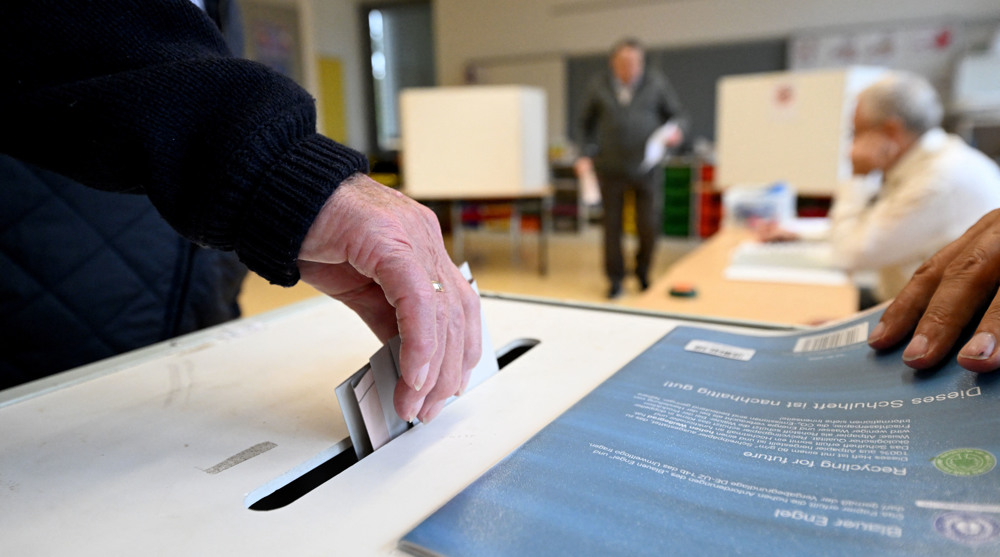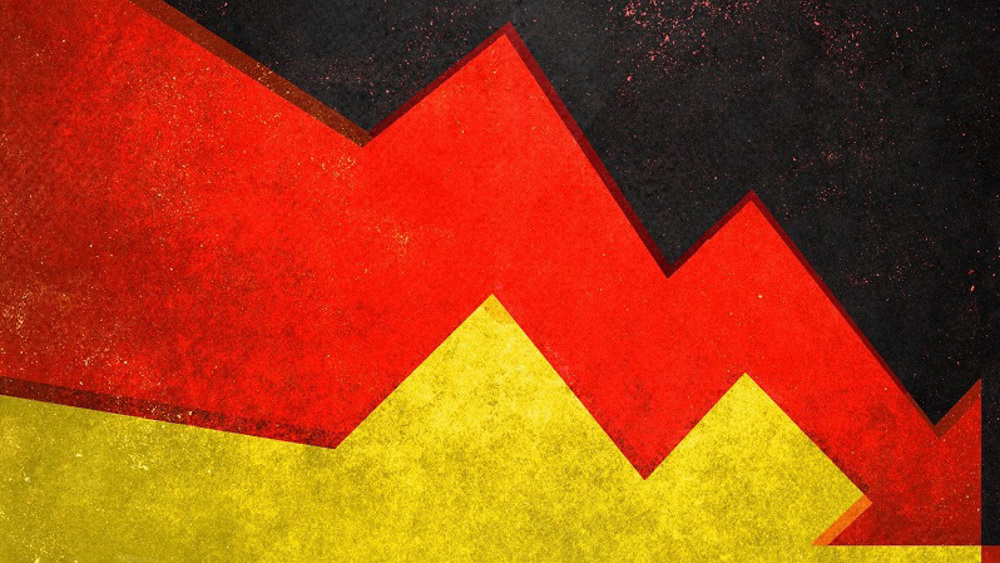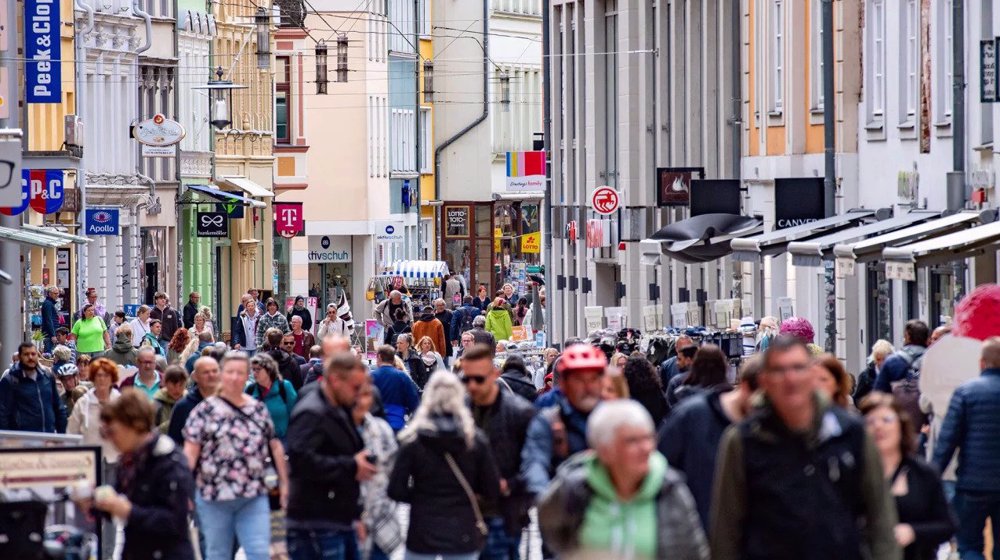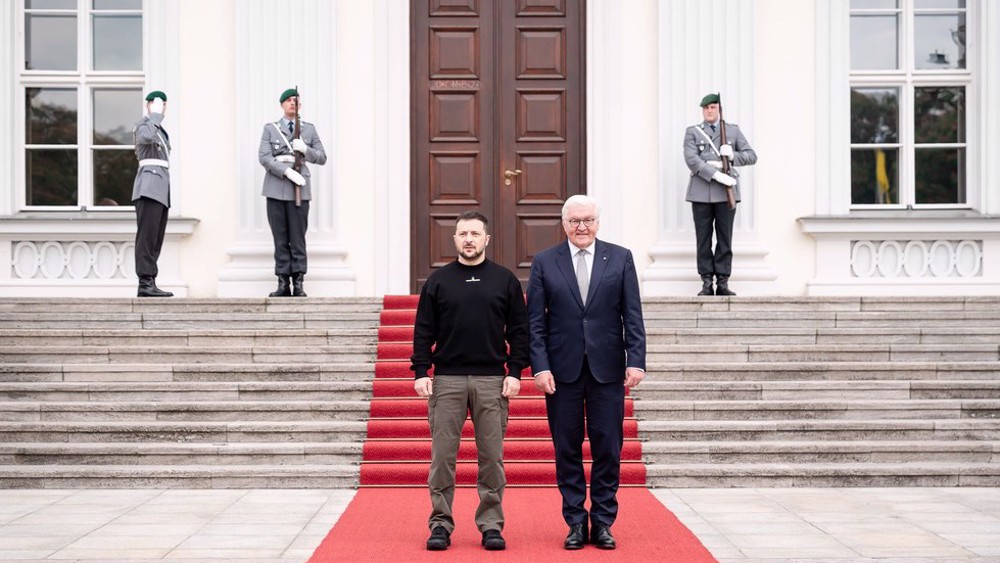Germany's ruling coalition dealt serious blow as far-right gains
German Chancellor Olaf Scholz’s fractious ruling center-left coalition has received a sharp rebuke after voters handed victory to the opposition conservatives, while far-right gained support in midterm elections.
Opposition conservatives won in both key states of Hesse and Bavaria on Sunday.
The far-right Alternative for Germany (AfD) party scored its best-ever result in a western state, in Hesse, and came in second place in both states.
All three parties in Scholz’s federal coalition - his Social Democrats, the Greens, and the pro-business Free Democrats (FDP) - did worse than five years ago in the states that together account for around a quarter of the German population.
German voters’ aggravated economic woes and migration fears had turned the opposition conservatives and the AfD into the winners of the mid-term elections in Bavaria and Hesse.
The results of the elections in these two wealthy states of Germany were seen as an indicator of the public mood for the rest of the German voters across the entire country.
Jens Spahn, a senior legislator for the conservative Christian Democrats (CDU), said that rarely had a government been given such a comprehensive slapdown.
Scholz’s popularity remains at its lowest level since he took office in December 2021, according to the ARD-Deutschland Trend survey. The survey showed that four out of five Germans were unhappy with Scholz’s performance.
The poll results, according to elections experts, are bound to stoke tensions in the already weak ruling coalition that has struggled to find common ground among its partners, with Scholz accused of failing to show the strong leadership needed to impose order and tackle the economic crisis caused by Berkin’s support for the US-led proxy war in Ukraine against Russia.
“We are right in the middle of the federal legislative term, where it is not unusual for the government to have low approval ratings and lose state elections,” said Philipp Koeker, a political scientist at the University of Hanover.
Still, coalition parties are likely to continue to follow increasingly separate paths to focus on issues relevant to their core electorate in response to the bad results, Koeker said, while all taking a tougher stance on migration.
The anti-migrant AfD is currently polling in second place nationwide, up from fifth in the 2021 election.
Analysts say this shift in public opinion makes it harder for the ruling parties to form any strong coalition government given that the country’s leftist parties do not form alliances with the far-right AfD party.
The Germans, accustomed to decades of prosperity, are now losing confidence.
Media reports indicate people are worried about their jobs. They are worried about what they have achieved in the past. Most people, in particular, people with low incomes, are experiencing a massive cut in the purchasing power of their salary.
Germany and several other EU states, under US pressure, have continued to supply weapons to Ukraine, despite business bankruptcies in European countries hitting the highest level in years.
The war between Russia and Ukraine also pushed up oil and gas prices. Europe is heavily dependent on Russia for much of its energy. The higher prices will likely trigger a global recession.
Skyrocketing energy prices have cost Europe nearly $1 trillion, according to a recently published report which state the current situation is the fallout of the war in Ukraine and is just the beginning of the deepest crisis in decades.

Election winner conservative Merz invites Netanyahu to Germany despite ICC warrant

Conservatives win German parliamentary elections amid surge in far-right support

Germany: Europe should pressure Trump to prevent US-Russia alliance
Hezbollah's display of power proved resistance cannot be eliminated: Iran parl. speaker
Israel escalates West Bank raids as official says regime seeking to complete Gaza genocide
Australian senator smeared by anti-Iran groups for saying Iranian women 'have a voice'
Palestinian man dies in Israeli prison as Foreign Ministry urges intl. probe into regime’s crimes
Putin says not opposed to Europeans’ involvement in Ukraine talks
VIDEO | Iranian Kurdish protesters demand European action against PKK, PJAK terror
VIDEO | Israel expands offensive in northern West Bank, deploys tanks to Jenin
VIDEO | Spaniards fill streets of Cádiz in solidarity with Palestine












 This makes it easy to access the Press TV website
This makes it easy to access the Press TV website